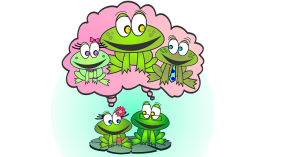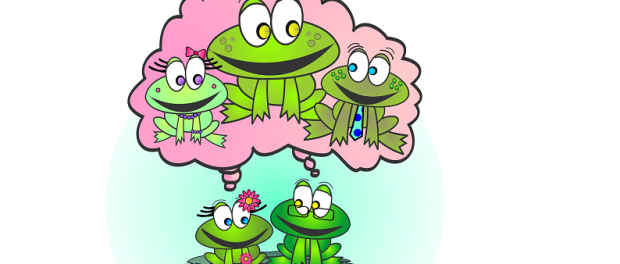Social Development During Early Childhood
Frog Mascots Teach Parents How To Evaluate Child's Social Development
 Social Development is one of the critical areas of growth during Early Childhood. Problems with social development are often overlooked, but can be at the core of relationship, academic, and job-related problems later in life. This guide provides a quick checklist so parents can evaluate their child’s social skills. The guide focuses on children from two years of age to fifth grade. The rest of the guide is dedicated to identifying what to do if a parent suspects a social developmental problem in their child along with a powerful 10 point action list of how to make improvements!
Social Development is one of the critical areas of growth during Early Childhood. Problems with social development are often overlooked, but can be at the core of relationship, academic, and job-related problems later in life. This guide provides a quick checklist so parents can evaluate their child’s social skills. The guide focuses on children from two years of age to fifth grade. The rest of the guide is dedicated to identifying what to do if a parent suspects a social developmental problem in their child along with a powerful 10 point action list of how to make improvements!
Social development must be stimulated from an early age. The child’s brain develops in response to the social stimulation and interaction that a child receives from the environment. Just like people build roads so cars can travel from here to there, the brain creates neural pathways so social information can travel through the brain. Children who are deprived of social stimulation, like those in some Chinese or Romanian orphanages, have smaller brains with less development in the social processing regions.
Even though social problems are the real culprit behind so many behavioral, learning, and relationship problems of children, this is an area that does not get enough attention by parents, teachers, and childhood development professionals. When parents enrich their child with a dynamic and developmentally stimulating social environment, the children develop greater social skills that can lead to a much more joyful and successful life. After all, humans are social beings!
Want to stay up on breaking news and research!

















